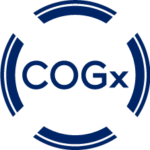Skills for Learning: Cognitive Diversity & Equity
Skills for Learning:
Cognitive Diversity & Equity

What is Cognitive Diversity?
Learning is a cognitive process. Every classroom is cognitively diverse. Learn how to associate learning difficulties to cognitive skills as well as refine your approach to how you teach through appropriate strategies to support their areas of difficulty.
Our Solutions
1. COGx Professional Development - Empowering Educators to Understand & Address Cognitive Diversity for Equity
Educators learn how each cognitive challenge manifests in the classroom and what routines and systems you can put into place to help. Educators conclude the program with clear methods to support students and proven educator strategies that improve students’ classroom experience.
What you will learn:
How to understand cognitive diversity - often referred to as neurodiversity or neurodivergence. Signs and accommodations for the most common learning differences in classrooms today including dyslexia, autism, twice-exceptional, non-verbal learning disabilities, and emotional and behavioral disorders. How to target and strengthen cognitive skills to improve learning ability.
How you will learn:
7 Video Micro Lessons from experts 6 Group Discussion Invitations 3 Visuals and Graphic Organizers 2 Application Guides Ongoing self-checks and application of concepts Direct access to your Program Leader Opportunities to give and receive feedback from your peers Teaching practice reflection Estimated time to complete: 3.5 hours
2. COGx Student Program - Empowering Students to Become Sophisticated Learners

The COGx program for students, Becoming a Sophisticated Learner, provides students with the foundational skills necessary to develop 21st century skills. Students master evidence-based techniques and strategies to process information effectively and for building reliable prior knowledge, which is a prerequisite for critical thinking, creative thinking and effective communication. Furthermore, students learn how to monitor, organize, self-regulate and adjust their learning (metacognition, executive function). Students are equipped to apply what they learn to their classes and studies and are as such prepared to succeed in school and beyond.





